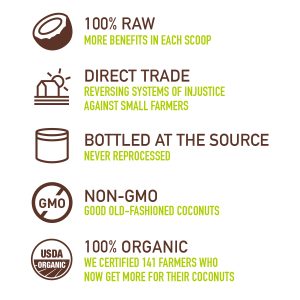In a world where the consequences of climate change are becoming increasingly evident, individuals are seeking ways to make a positive impact through their daily choices. One powerful avenue for change lies in the realm of mindful food choices. From the farm to the plate, every step in the food production and consumption process has environmental implications. In this article, we delve into how individuals can play a pivotal role in reducing their carbon footprint through thoughtful decisions about what they eat.
1. Choose Locally Sourced Foods:
Opting for locally sourced foods is a cornerstone of mindful eating. Locally produced foods often require less transportation, reducing the carbon emissions associated with long-distance shipping. Supporting local farmers not only fosters community resilience but also minimizes the environmental impact of food transportation.
2. Embrace Seasonal Eating:
Seasonal eating aligns with the natural cycles of food production. By choosing fruits and vegetables that are in season, individuals can reduce the energy required for the cultivation and storage of out-of-season produce. Seasonal eating not only supports local agriculture but also lessens the environmental burden of energy-intensive greenhouse cultivation.
3. Minimize Food Waste:
Food waste is a significant contributor to carbon emissions. By practicing mindful consumption and minimizing food waste, individuals can reduce the demand for excess food production, transportation, and disposal. Composting can further transform food scraps into valuable resources, enriching the soil without contributing to methane emissions in landfills.
4. Embrace Plant-Based Diets:
Shifting towards plant-based diets is a powerful way to lower one’s carbon footprint. Plant-based foods generally have a smaller environmental impact compared to animal products. Livestock farming is a significant contributor to greenhouse gas emissions, deforestation, and water pollution. Embracing plant-based diets supports sustainable agriculture and reduces the environmental burden associated with intensive animal farming.
5. Opt for Organic and Sustainable Options:
Choosing organic and sustainably produced foods supports environmentally friendly farming practices. Organic farming methods typically eschew synthetic pesticides and fertilizers, promoting soil health and biodiversity. Sustainable farming practices reduce the environmental impact associated with chemical inputs and monoculture, contributing to a healthier planet.
6. Mindful Water Consumption:
Water scarcity is a pressing global issue, and food production is a major contributor to water usage. Mindful food choices involve selecting water-efficient crops and being aware of the water footprint of different food items. By choosing foods that require less water for cultivation, individuals contribute to responsible water management.
7. Optimize Energy-Efficient Cooking:
The energy used in cooking also contributes to an individual’s carbon footprint. Opting for energy-efficient cooking appliances, utilizing methods like steaming and pressure cooking, and reducing cooking times can all contribute to a lower energy consumption in the kitchen. Renewable energy sources further enhance the sustainability of cooking practices.
8. Choose Sustainable Seafood:
For those who include seafood in their diet, choosing sustainably sourced options is crucial. Overfishing and destructive fishing practices contribute to ecosystem degradation and loss of biodiversity. By selecting seafood certified by sustainable fisheries, individuals can support responsible fishing practices and protect marine ecosystems.
9. Reduce Dependence on Processed Foods:
The production and packaging of processed foods often involve resource-intensive industrial processes. By reducing dependence on processed and packaged foods, individuals can minimize the environmental impact associated with manufacturing, transportation, and waste disposal. Choosing whole, unprocessed foods is not only healthier but also more sustainable.
10. Educate and Advocate:
Sharing knowledge and advocating for sustainable food practices within communities can create a ripple effect. Education empowers individuals to make informed choices, and collective efforts can drive change at a broader level. By fostering awareness and advocating for sustainable food systems, individuals contribute to a more conscious and environmentally friendly global community.
In conclusion, every bite we take can either contribute to or alleviate the environmental challenges our planet faces. Mindful food choices empower individuals to take an active role in reducing their carbon footprint. From supporting local farmers to embracing plant-based diets, each decision made at the grocery store and in the kitchen can have a lasting impact on the health of our planet. By making mindful food choices, individuals not only nourish their bodies but also become stewards of a sustainable and resilient future.

















